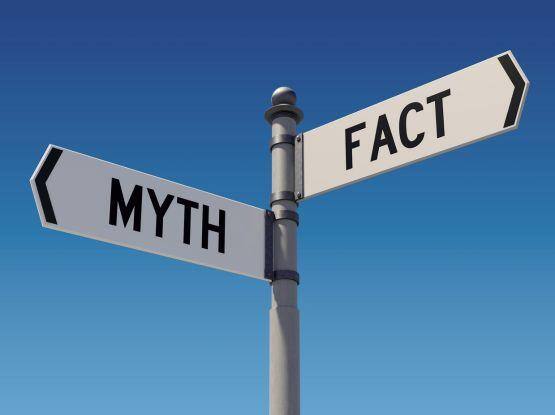Key Takeaways:
- You can pursue a lawsuit for emotional distress following a car accident if you've endured significant psychological suffering - such as anxiety, depression, or PTSD - that interferes with your daily life.
- To prove emotional distress, you'll need substantial evidence, including medical records, testimony from mental health professionals, and documentation of your treatment for psychological trauma.
- Compensation for emotional distress is considered non-economic damages and is awarded based on the severity of the emotional harm you've experienced.
Emotional distress following a car accident can deeply affect various aspects of your life.
Many accident victims face emotional challenges such as anxiety, depression, and post-traumatic stress disorder (PTSD), often requiring professional intervention.
Addressing these emotional injuries in personal injury cases is crucial to ensure that victims receive fair compensation not only for their physical pain and financial losses but also for their mental health struggles.
Have you or someone you know recently been involved in a car accident? Contact our Atlanta car accident attorneys today for comprehensive legal guidance.
Table Of Contents
- Can I Sue for Emotional Distress?
- How Emotional Distress Can Affect Accident Victims
- Proving Emotional Distress in a Personal Injury Lawsuit
- Compensation Available For Emotional Distress
- How an Experienced Car Accident Lawyer Can Help
- Pursuing Emotional Distress Claims
Can I Sue for Emotional Distress?
Accident victims can pursue legal action for emotional distress if they endure significant emotional suffering as a result of a motor vehicle accident.
Emotional distress claims focus on psychological injuries, such as post-traumatic stress disorder (PTSD), anxiety, depression, and other mental health issues, rather than physical harm. While these injuries are often more difficult to prove than physical ones, they can be just as disruptive to daily life and overall well-being.
In personal injury lawsuits, emotional distress is classified as non-economic damage. This allows victims to seek compensation for psychological impacts that diminish their quality of life, including panic attacks, sleep disturbances, and severe anxiety. Medical records and documentation from mental health professionals are critical to substantiating these claims.
With sufficient evidence, accident victims can pursue compensation for emotional distress alongside claims for physical injuries and property damage. A personal injury attorney can ensure emotional suffering is properly recognized and compensated in court.

How Emotional Distress Can Affect Accident Victims
Emotional distress following a traumatic accident can have significant psychological effects on victims.
The emotional toll can be overwhelming, ranging from anxiety and depression to more severe conditions like post-traumatic stress disorder (PTSD). After a motor vehicle crash, victims often struggle with emotional pain that disrupts their ability to carry out daily tasks, impacting relationships, work, and overall mental health.
Psychological distress doesn’t just affect the mind - it can lead to physical symptoms, such as chronic pain and heightened anxiety. Victims may also experience sleep disturbances, panic attacks, and increased stress levels. These emotional challenges can hinder physical recovery and result in long-term mental suffering.
The financial burden of medical expenses, lost income, and the cost of mental health care compounds the difficulty. For many, the emotional and psychological impact of a serious injury can be as debilitating as the physical harm. Addressing these mental health issues in personal injury claims is essential to ensure victims receive fair compensation for their suffering.
Proving Emotional Distress in a Personal Injury Lawsuit
Proving emotional distress in a personal injury lawsuit can be difficult due to the subjective nature of emotional harm.
Unlike physical injuries, psychological trauma is harder to measure, making strong evidence essential for a successful claim. Victims must provide substantial proof showing how their emotional injuries have affected their daily lives and overall mental health.
Key evidence includes medical documentation, such as records and evaluations from mental health professionals. Testimony from the professionals who treated the victim’s psychological trauma also serves as persuasive evidence in court. Additional support, like records of therapy appointments, phone calls, and mental health treatments, further strengthens the case.
A well-documented claim with substantial evidence ensures that accident victims can seek fair compensation for emotional suffering. Presenting this compelling evidence allows personal injury attorneys to highlight the severity of the victim's emotional harm alongside their physical injuries.
Compensation Available For Emotional Distress
Compensation for emotional distress is classified as non-economic damages in personal injury cases.
This includes compensation for pain and suffering including emotional distress, anxiety, and emotional pain. Victims may also claim loss of consortium, which refers to the impact the injury has on relationships with loved ones. Unlike economic losses like medical expenses or property damage, non-economic damages focus on the psychological and emotional toll of the injury.
Emotional distress compensation differs from compensation for physical pain, as it addresses the mental suffering and emotional challenges victims endure. While physical pain is more tangible, emotional suffering can significantly affect a victim’s overall quality of life, which is more difficult to quantify.
Monetary compensation for emotional distress is often based on the severity of the emotional harm, with the potential for higher awards in more severe cases. The expertise of the attorney is crucial in ensuring that victims receive fair compensation for both their physical injuries and emotional trauma.

How an Experienced Car Accident Lawyer Can Help
Hiring an experienced car accident attorney is crucial when seeking compensation for emotional damages.
Accident lawyers can guide you through the legal process and gather key evidence, such as medical records and documentation, to strengthen your personal injury claim. This evidence is vital in proving the emotional harm you’ve endured.
An experienced attorney can also navigate the complexities of dealing with insurance companies and adjusters, handling negotiations to ensure you receive fair compensation for your emotional damages and avoid low settlement offers.
Accident lawyers know how to build a case that accurately reflects the emotional and psychological trauma you've suffered. With the expertise of a skilled attorney, you can maximize your chances of securing fair compensation for both emotional and physical injuries.
Pursuing Emotional Distress Claims
After a motor vehicle accident, it’s important to address both emotional trauma and physical injuries.
Emotional harm can significantly affect a victim’s life, often leading to long-term suffering. Overlooking the emotional aspects of a personal injury lawsuit can prevent you from receiving the compensation you deserve for the psychological and mental anguish you’ve experienced.
Consulting a personal injury lawyer is essential to understanding your legal options. They play a key role in guiding you through the process of filing a claim for emotional distress damages and ensuring your rights are upheld.
For help navigating your case, contact the experienced attorneys at The Law Offices of Julian Lewis Sanders & Associates for a free consultation. We will work with you to secure the compensation you deserve and support your journey toward recovery.
People Also Ask
What is emotional distress in a car accident?
Emotional distress in a car accident refers to the psychological impact, such as anxiety, depression, or Post-traumatic stress disorder (PTSD), that a victim experiences after the accident.
How do you prove emotional distress?
To prove emotional distress, you need substantial evidence, such as medical records, testimony from mental health professionals, and documentation of your treatment and psychological condition.
What is an example of emotional distress?
An example of emotional distress includes experiencing severe anxiety, panic attacks, or depression after a car accident, which interferes with your daily life.
How much compensation for anxiety after a car accident?
The amount of compensation for anxiety after a car accident depends on the severity of the emotional harm and the specific details of the case, but it typically falls under non-economic damages.
Posted by Julian Lewis Sanders
At The Law Offices of Julian Lewis Sanders & Associates, we understand the gravity of personal injury situations - it's our priority. Committed to aiding you in your time of need, we specialize in listening to your story, discerning your individual needs, and swiftly executing strategic actions to secure the compensation you deserve. Based in Georgia, our legal team comprises experienced personal injury attorneys dedicated to delivering optimal service tailored to your unique circumstances.
Facebook




